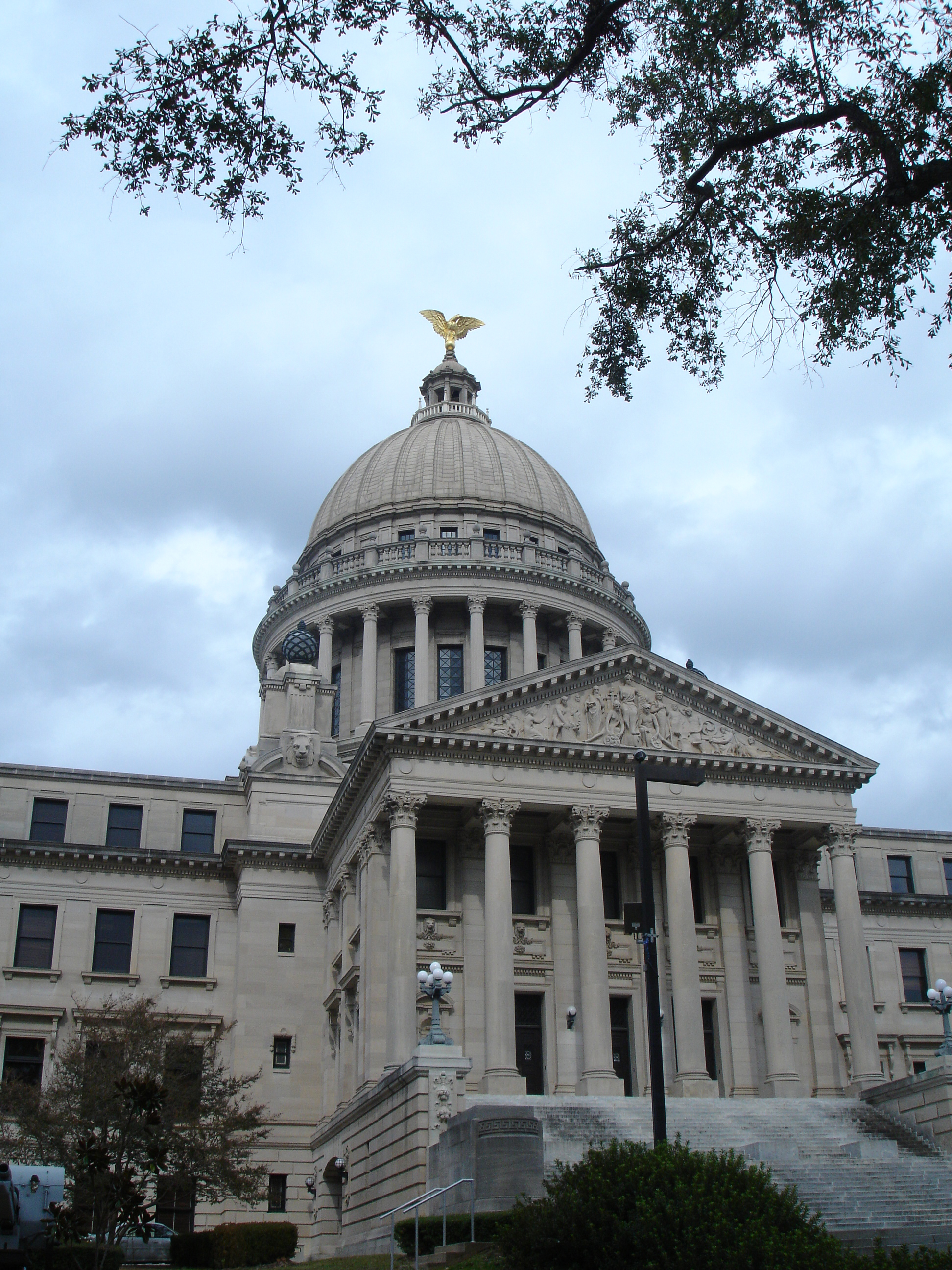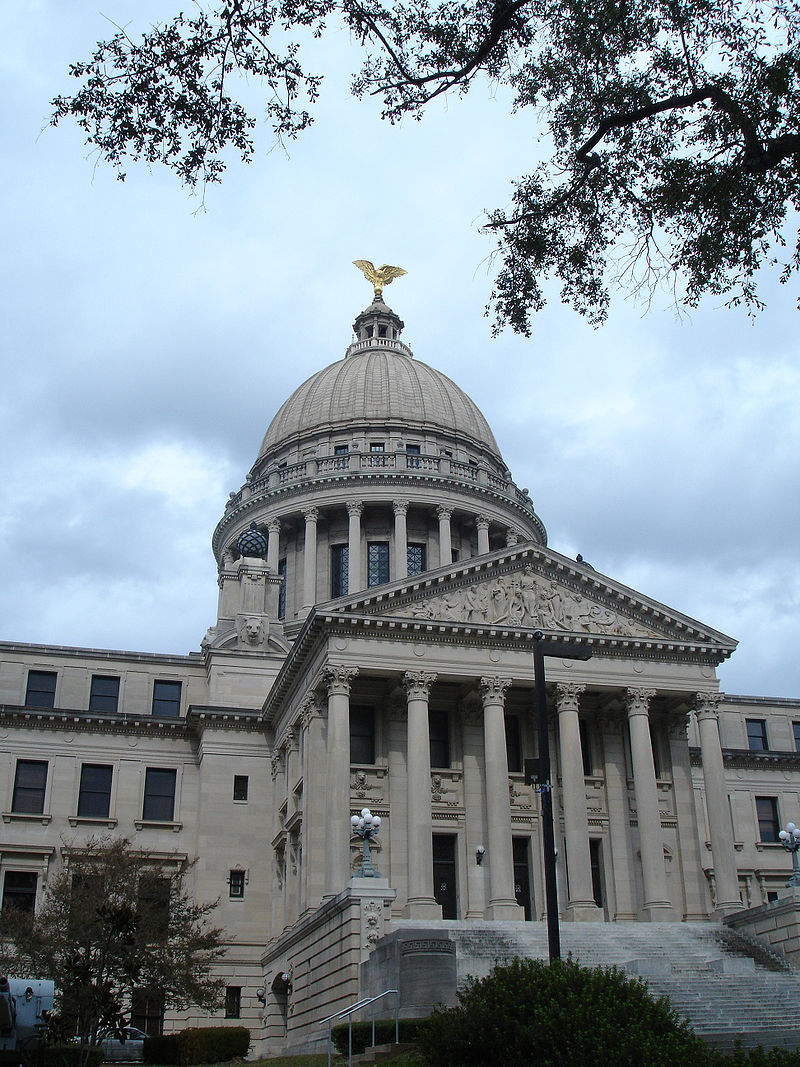Tag: mississippi
-
Reeves, Presley, and Gray running in Mississippi gubernatorial election

Incumbent Tate Reeves (R), Brandon Presley (D), and Gwendolyn Gray (independent) are running in the general election for governor of Mississippi on Nov. 7, 2023. Reeves was elected in 2019 by five percentage points. According to Mississippi College political science professor Glenn Antizzo, Reeves’ margin of victory was “less than the usual split between Republicans…
-
All candidates for Mississippi House of Representatives District 66 complete Ballotpedia’s Candidate Connection survey

Both of the candidates running in the Aug. 29, 2023, Democratic primary runoff election for Mississippi House of Representatives District 66 — Roshunda Harris-Allen (D) and Fabian Nelson (D) — completed Ballotpedia’s Candidate Connection survey. These survey responses allow voters to hear directly from candidates about what motivates them to run for office. Here are the candidates’ responses…
-
Results from Mississippi’s battleground House primaries

Mississippi voters decided 44 contested state House primaries on Aug. 8, a decade-low for the chamber, down one from the previous low in 2019. Ballotpedia identified six battleground primaries in the chamber: one between Democrats and five between Republicans. In Mississippi, a candidate wins a primary outright if they receive a majority vote. Otherwise, the…
-
Sixteen incumbents face challengers in Mississippi’s Senate primary

Sixteen incumbents in the 52-member Mississippi State Senate faced primary challengers on Aug. 8. As of Aug. 9, Sen. Philip Moran (R), of District 46, was the only incumbent defeated in the primary, while the race featuring Sen. Sarita Simmons (D), of District 13, was too close to call. Ballotpedia identified eight battleground primaries in…
-
Winner of Aug. 8 Republican primary will be the next Mississippi Public Service Commissioner for the Northern District

Chris Brown and Tanner Newman are running in the August 8, 2023, Republican primary for the Mississippi Public Service Commission Northern District. The filing deadline was February 1, 2023. The general election is on November 7, 2023. Incumbent Brandon Presley (D), in office since 2008, is running for governor of Mississippi. The Mississippi Public Service…
-
Despite increase among Republicans, contested primaries in Mississippi House reach decade-low

There are 44 contested state legislative primaries coming up on Aug. 8 in the Mississippi House, a decade-low for the chamber, down one from the previous low in 2019. While the total number of contested primaries is down, the number of contested Republican primaries is at a decade-high. This year, 30 state legislative races have…
-
Mississippi State Senate sees lowest number of incumbent retirements since 2011

Three incumbents did not file for re-election to Mississippi’s Senate in 2023. This was the lowest number of retirements since 2011, and a 66% decrease from the average of 8.7 retirements per cycle between 2011 and 2019. Mississippi is holding its primary on Aug. 8, with a primary runoff on Aug. 29. The general election…
-
All candidates for Mississippi House of Representatives District 33 Republican primary complete Ballotpedia’s Candidate Connection survey

All three candidates running in the August 8, 2023, Republican primary election for Mississippi House of Representatives District 33—Jonathan Dantzler (R), Jim Estrada (R), and Dennis Nowell (R)—completed Ballotpedia’s Candidate Connection survey. These survey responses allow voters to hear directly from candidates about what motivates them to run for office. Eight of the country’s 99…
-
All candidates for Mississippi House of Representatives District 111 complete Ballotpedia’s Candidate Connection survey

All three candidates running in the Aug. 8 Republican primary for Mississippi House of Representatives District 111 — Eric Camp (R), Jimmy Fondren (R), and David Carson Futch (R) — completed Ballotpedia’s Candidate Connection survey. These survey responses allow voters to hear directly from candidates about what motivates them to run for office. Here are…
-
Absentee/mail-in ballot request deadlines, 2023
Eight states—Kentucky, Louisiana, Mississippi, New Jersey, Pennsylvania, Virginia, Wisconsin, and Washington—are holding statewide elections this year. Absentee/mail-in voting is voting that does not happen in person on Election Day but instead occurs another way, usually by mail. All states allow for some form of absentee/mail-in voting. Some states require voters to provide a valid excuse…

